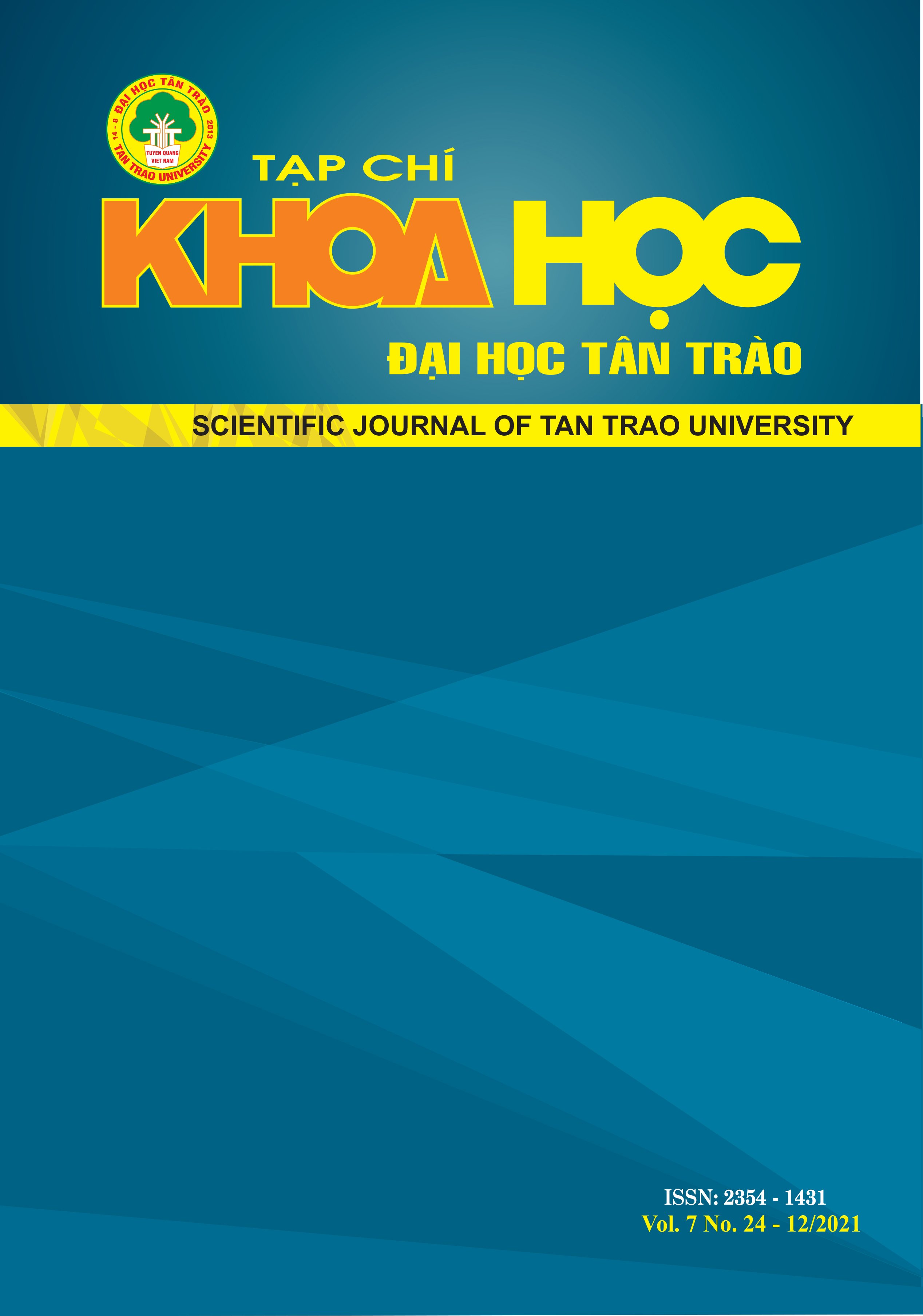THUYẾT KIẾN TẠO QUAN ĐIỂM VÀ LÝ LUẬN DẠY HỌC
DOI:
https://doi.org/10.51453/2354-1431/2021/632Từ khóa:
kiến tạo, dạy, há»c, tri thứcTóm tắt
Trên cơ sở lí luận của triết học và tâm lí học nhận thức, thuyết kiến tạo đã đưa ra những quan điểm về tri thức, về học tập và về dạy học. Theo đó, dạy học phải là quá trình mà giáo viên và người học cùng tạo ra môi trường để thúc đẩy người học chủ động kiến tạo tri thức và cảm nhận được ý nghĩa của việc kiến tạo ấy.
Tải xuống
Tài liệu tham khảo
[1] Viet, H.B. (2020). Some Researches on the Problem of Constructivism Teaching, Education Magazine, 474 (2-3): 27-29.
[2] Gui, Zh.Ch. (2002). Research on Radical Constructivism Teaching Thought. East China Normal University, Chinese.
[3] Vygotsky, L. (2010). Thinking and language. BeiJing University Press, Chinese.
[4] Steffe, L.P., Gale, J. (2004). Constructivism in Education. East China Normal University Press, Chinese.
[5] Eysenck, M. (2004). Cognitive psychology. East China Normal University Press, Chinese.
[6] Sheng, Zh.T. (2005). Views of Knowledge, Learning and Teaching: Three Levles of Constructivism. Global Education, Chinese, 35 (5): 32-36.
[7] Thien, N.V. (2007). Identity, Difference and Similarity Through the Field of Vision of Linguistic Typology. East China Normal University, Chinese.
[8] Wen, Gao., Yan, X.B., Gang, W. (2008). Constructivist Education Research. Educational Science Publishing, Chinese.
[9] Yang, W.X. (2021). The Development of the Theory of Knowledge in the Sociology of Education——from Herbert Spencer to Michael Young. Educational Research, Chinese, (6): 49-61.
[10] Hou, L.Zh. (2010). Transform classroom teaching methods. Guangdong Education Press, Chinese.
[11] Piaget J.W.F. (2001). Psychology and Education. Vietnam Education Publishing House
Tải xuống
Đã Xuất bản
Cách trích dẫn
Số
Chuyên mục
Giấy phép

Tác phẩm này được cấp phép theo Giấy phép Quốc tế Creative Commons Attribution-ShareAlike 4.0 .
Bài báo được xuất bản ở Tạp chí Khoa học Đại học Tân Trào được cấp phép theo giấy phép Ghi công - Chia sẻ tương tự 4.0 Quốc tế (CC BY-SA). Theo đó, các tác giả khác có thể sao chép, chuyển đổi hay phân phối lại các bài báo này với mục đích hợp pháp trên mọi phương tiện, với điều kiện họ trích dẫn tác giả, Tạp chí Khoa học Đại học Tân Trào và đường link đến bản quyền; nêu rõ các thay đổi đã thực hiện và các nghiên cứu đăng lại được tiến hành theo cùng một bản quyền.
Bản quyền bài báo thuộc về các tác giả, không hạn chế số lượng. Tạp chí Khoa học Tân Trào được cấp giấy phép không độc quyền để xuất bản bài báo với tư cách nhà xuất bản nguồn, kèm theo quyền thương mại để in các bài báo cung cấp cho các thư viện và cá nhân.
Mặc dù các điều khoản của giấy phép CC BY-SA không dành cho các tác giả (với tư cách là người giữ bản quyền của bài báo, họ không bị hạn chế về quyền hạn), khi gửi bài tới Tạp chí Khoa học Đại học Tân Trào, tác giả cần đáp ứng quyền của độc giả, và cần cấp quyền cho bên thứ 3 sử dụng bài báo của họ trong phạm vi của giấy phép.


